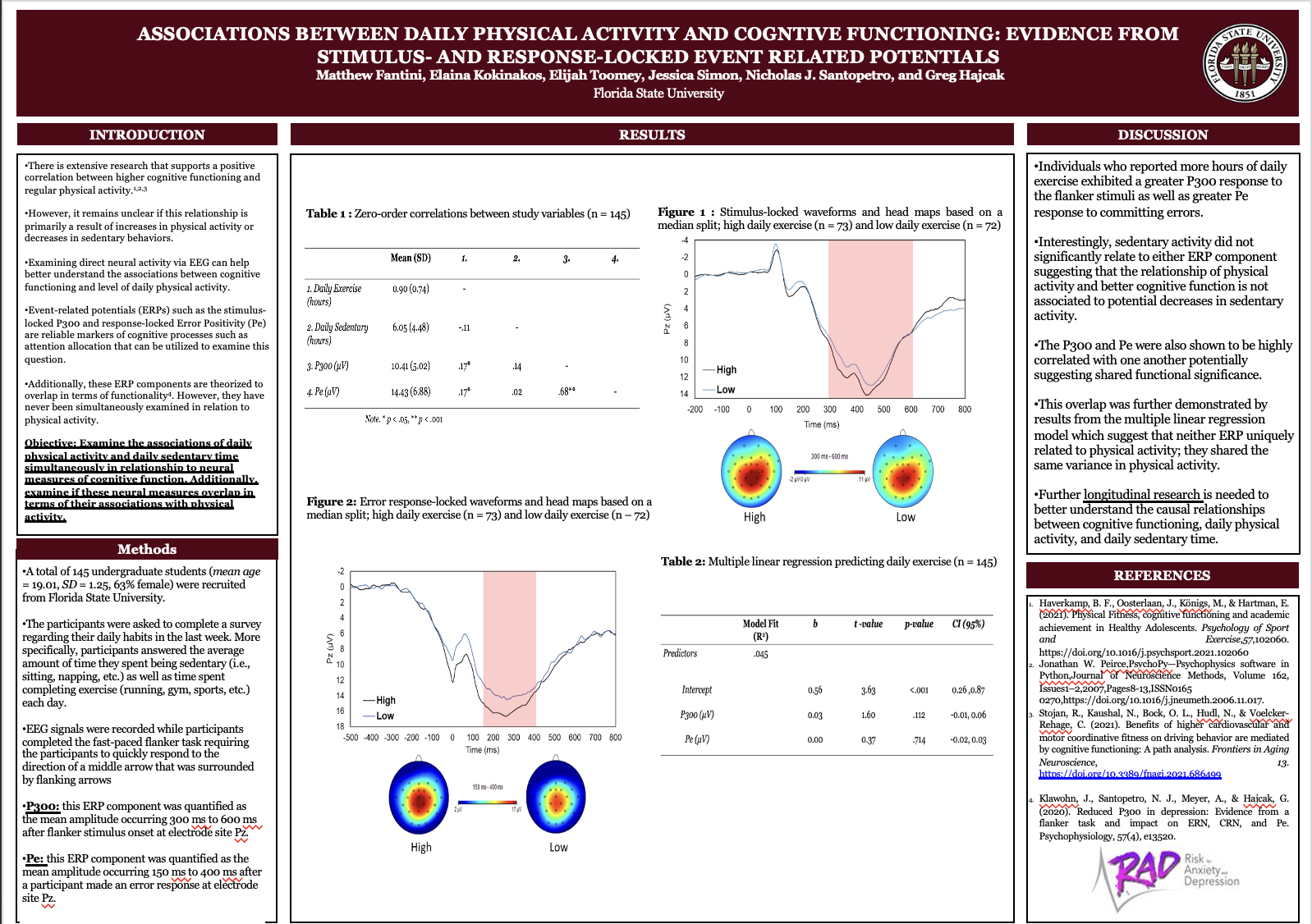Research Symposium
23rd annual Undergraduate Research Symposium, April 6, 2023
Elaina Kokinakos Poster Session 2: 1:30 pm - 2:30 pm/ Poster #76

BIO
My name is Elaina Kokinakos, and I am a senior at Florida State University studying criminology and psychology. I am originally from Boca Raton, Florida. After graduating, I plan on attending graduate school at Teachers College Columbia University or NYU Steinhardt to receive a degree in Mental Health Counseling. My research interests vary, but I am mainly interested in studying ways to combat recidivism.
Associations Between Daily Physical Activity and Cognitive Functioning: Evidence From Stimulus and Response Locked Event Related Potentials
Authors: Elaina Kokinakos, Nicholas SantopetroStudent Major: Criminology and Psychology
Mentor: Nicholas Santopetro
Mentor's Department: Psychology Mentor's College: College of Arts and Sciences Co-Presenters: Matthew Fantini and Elijah Toomey
Abstract
There is extensive research linking physical activity to better cognitive outcomes such as improved executive functioning and memory related to increases in exercise. Alternatively, there is less consistent evidence demonstrating that higher levels of sedentary behaviors are associated to worse cognitive functioning. Furthermore, our understanding of the exact neural mechanisms underlying these modulations in cognitive functioning related to exercise or sedentary activity remains quite elusive. Therefore, the current study examined the association between average daily exercise time and daily sedentary time with neural measures of attention allocation. More specifically, a total of 145 undergraduate students (age = 19.01, SD = 1.25, 63% female) completed self-report measures of time spent completing exercise and sedentary activities in the past week. These participants then completed a computerized speeded response task (i.e., flanker task) while EEG recorded to elicit the stimulus-locked P300 component and the response-locked error positivity (Pe) component. At the zero-order, individuals exhibiting higher P300, and higher Pe amplitude reported exercising more daily. There were no significant associations between these neural components and amount of sedentary behavior. Furthermore, when placed into a model as simultaneous predictors of daily exercise, neither P300 nor Pe amplitude emerged as a unique predictor suggesting that both of these neural components are explaining overlapping variance in regard to time spent exercising. In sum, these results suggest that daily exercise is more distinctly associated with cognitive processes related to attention.
Keywords: Exercise and Cognitive Functioning


